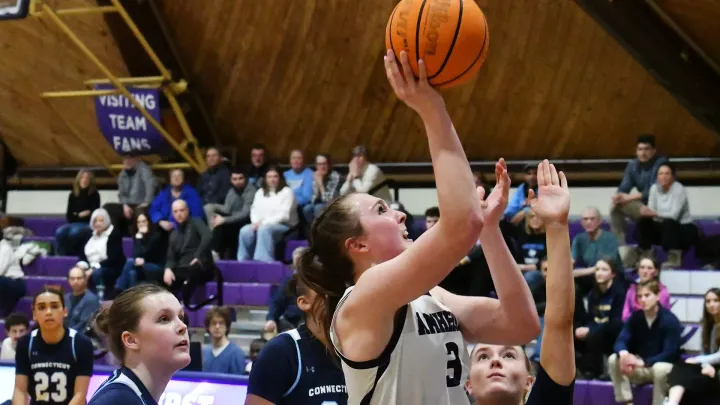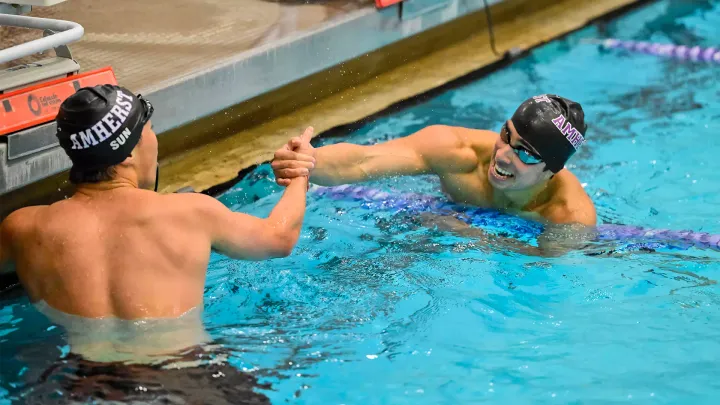WNBA Combines Elite Basketball With Drive For Social Change
In the first week of July, 144 players and 72 staff members arrived in Bradenton, Florida for a shortened 22-game Women’s National Basketball Association (WNBA) regular season and an anticipated full playoff schedule. Much like the requirement for students coming back to Amherst, the players were tested for Covid-19 three times before they entered into a bubble at IMG Academy, an athletic college preparatory boarding school.
Life in the Wubble, as the players affectionately dubbed it, has been mixed; the compact nature of the boarding school campus allows for the continued safety of the players with zero positive tests to date, but the conditions of the bubble are not what the players expected. The athletes arrived to find uncleaned rooms and facilities, low quality food options and mouse traps scattered throughout the site. The WNBA has worked throughout the season to improve conditions, but the contrast between the posh Disney resorts of the NBA and the high school dorm-like experience of the WNBA bubble underscore the inequalities female athletes face regularly. With a league-wide commitment to social justice, the Women’s National Basketball Players Association dedicated its season to Breonna Taylor and partnered with the #SayHerName campaign, a movement founded by Kimberlé Crenshaw in 2014 to increase awareness of and support for the often invisible Black female victims of police brutality and social anti-Black racism.
But before the vast impacts of the coronavirus, WNBA players were already pushing for major changes this season both in and outside of the league, especially after losing the reigning MVP Breanna Stewart to an injury she sustained playing in a European league. Many WNBA athletes spend their off-seasons in European leagues, mainly due to the relatively low salaries they earn in the WNBA. The WNBA players union won a major collective bargaining agreement in January 2020. The maximum salary increased from $117,500 to $215,000, and now the average player will earn six figures. With the ability to earn cash performance-based bonuses, the league’s top players can earn upwards of $500,000. The players’ goal is to have the same standard as the NBA, where revenue is split 50-50 between the league and the players.
The agreement also provides a full salaried maternity leave and other important measures, including a dedicated nursing area and a $5,000 stipend for childcare. Players are also able to seek a $60,000 reimbursement for costs related to fertility treatments and adoption. In exchange for the salary increase and new benefits, the WNBA will gradually phase in a requirement that players must report at the start of the season, except those in their first three seasons or on national teams. This requirement is an attempt to limit players’ ability to sign international contracts to avoid injuries like Stewart’s.
At the start of the league’s 24th season, all eyes were on the number one overall pick Sabrina Ionescu, a close mentee of Kobe Bryant who set the NCAA record for career triple-doubles at Oregon. Ionescu did not disappoint through her first three games for the New York Liberty before a grade three ankle sprain took her out for the remainder of the season.
Last year’s MVP and defending champion, Washington Mystics forward-guard Elena Delle Donne, opted out of play out of concern for Covid-19 due to chronic Lyme disease. This year, Courtney Vandersloot, point guard for the Chicago Sky, and A’Ja Wilson, power forward on the Las Vegas Aces, lead the MVP-race after earning August Player of the Month honors. Breanna Stewart, considered by many to be the best player in the league, remains a contender as well. She ranks in the top ten of almost every major individual statistic category, including points (third, 19.6), rebounds (eighth, 8.4) and blocks (sixth, 1.3) per game. DeWanna Bonner, Candace Parker and Brittney Griner are also possible MVP candidates.
Heading into the final week of the regular season, teams are turning their focus to playoff seedings. The Seattle Storm, led by 2018 MVP Breanna Stewart and four time Olympic gold medalist Sue Bird, remain on top of the WNBA standings. Stewart missed the entire 2019 season due to an Achilles tear she sustained playing for a team in Russia to supplement her limited WNBA income. Bird also missed the 2019 season with a knee injury. Enjoying their superstar tandem back in action, the Storm look to capture their 4th championship with the playoffs slated to start in mid-September.
The WNBA postseason is an eight-team tournament with the top two seeded teams earning a double-bye spot to the semifinals. While the first rounds are single elimination, the semifinals and championship are best-of-five series. The Storm, Aces, Lynx, Sparks, Mercury and Sky have all clinched playoff spots and are now competing for the coveted byes. At 13-6, the third-place Minnesota Lynx hope they can squeeze past the Storm or the Aces for a bye, having lost in the first round two years in a row. The Lynx are counting on surprise rookie of the year candidate Crystal Dangerfield to carry them past the finish line. While the Lynx depend on new talent, the fifth-place Phoenix Mercury are hoping their legendary veteran Diana Taurasi can bring her playoff and Olympic experience to the home stretch. Whoever hoists the championship trophy in October will do so while they “Say Her Name.”
Before their first game, the players of the WNBA had already made it clear what the overarching message was for the 2020 season: the fight for social justice. This message is not new for the WNBA who have been on the forefront of the fight for women’s, LGBTQ and voting rights and against police brutality and racism. For many players including Nneka Ogwumike, president of the players union, the league’s commitment to social justice was non-negotiable in agreeing to the creation of a bubble season.
Layshia Clarendon of the Liberty spoke on behalf of the players before the opening game: “We are dedicating this season to Breonna Taylor, an outstanding EMT who was murdered over 130 days ago in her home. We are also dedicating this season to Say Her Name campaign, a campaign committed to saying the names and fighting for justice for Black women. Black women who are so often forgotten in this fight for justice, who do not have people marching in the streets for them.” The players wear Breonna Taylor’s name on their jerseys as they use their voices to amplify those of Black women across the country.
Four years ago when Colin Kaepernick began kneeling, he had company across the WNBA. The entire Indiana Fever team locked arms and kneeled during the national anthem. At the same time, Lynx players including Seimone Augustus and Maya Moore wore black shirts which read “Change starts with us, justice and accountability” on the front and the back had the words Black Lives Matter and the names Philando Castile and Alton Sterling.
Maya Moore, who has won four WNBA championships, an MVP award, and two Olympic gold medals, is sitting out of her second season to continue to fight for criminal justice reform. She has worked tirelessly on the bid for freedom of Jonathan Irons, a Black man who was wrongly convicted and sentenced to 50 years in prison at 18. Irons was released earlier this summer from a Missouri penitentiary after 23 years. Moore serves as an inspiration for players across the league and people around the country. In addition to the messages on the courts, social media, to the press and on their clothing, the players are also involved in multiple initiatives including Unite the Vote, which launched on the 100th anniversary of the passing of the 19th amendment and is a month-long competition to see which team can register the most voters. The team that wins will secure 200 care packages for housing and food-insecure families in their hometown.
Not everyone associated with the league is on the same page, however: Atlanta Dream owner and Georgia Senator Kelly Loeffler has been a vocal critic of Black Lives Matter and of the league itself for dedicating the season to the Say Her Name campaign. The players responded by wearing “Vote Warnock” shirts, promoting Rev. Raphael Warnock, Loeffler’s Democratic challenger in this November’s Senate race.
While many eyes are on the current NBA strikes, WNBA players have been consistently fighting for social justice reforms since the league’s inception. The athletes of the WNBA lead the way on and off the court. Even in the face of unequal and unjust conditions, they continue to rise.




Comments ()